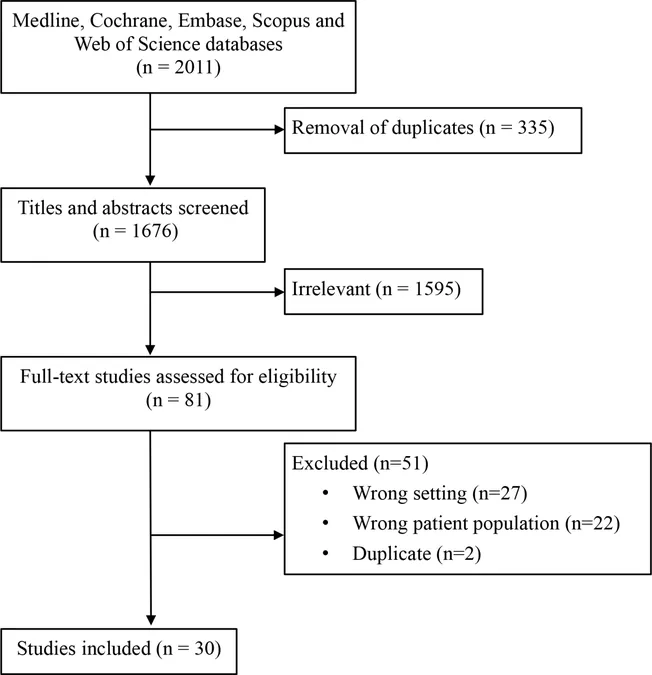
Navigating Informed Consent in Humanitarian Crises: Insights and Strategies
2024-11-20
Author: Michael
The Challenges of Informed Consent
Informed consent often suffers from a fundamental lack of trust within affected communities. Historical injustices, such as the controversial Pfizer Trovan trial in Nigeria in 1996, where inadequate information was provided leading to future vaccine boycotts, further complicate potential participants' willingness to engage. The distressing example of the Campylobacter Genomics and Enteric Dysfunction (CAGED) project in Ethiopia illustrates the real-world consequences of community mistrust, which can result in the withdrawal of consent and disruption of crucial research.
Lack of Trust
Participants in emergencies often confuse research intentions with humanitarian aid provisions. In environments where basic survival resources depend on assistance, individuals may reluctantly feel forced to consent to research, believing it to be a prerequisite for receiving assistance.
Therapeutic Misconception
Communities affected by crises face severe disruptions to social networks and basic necessities. Vulnerable groups, including children and displaced families, are particularly at risk. Their ability to understand the nuances of research participation can be compromised, necessitating a tailored approach to informed consent, especially given ethical considerations around children's autonomy and assent.
Vulnerable Populations
Trauma can impair individuals' cognitive functions, making it challenging for them to comprehend consent forms or research details fully. In crisis situations, individuals are often emotionally distraught, further complicating their ability to give informed consent.
Reduced Capacity
Concerns about confidentiality and safety are paramount. In politically unstable environments, participants may fear repercussions if their identities are revealed, especially if the research touches on sensitive subjects.
Security and Privacy Concerns
Research involving vulnerable populations can inadvertently cause trauma, especially when dealing with sensitive topics like violence or discrimination. Investigators must be vigilant in assessing the potential harms against the benefits of the research outcomes.
The Risk of Harm
The disparity in influence between researchers and participants can hinder true informed consent. Those in vulnerable situations may feel coerced due to their reliance on aid and support, making them less likely to pose questions or decline participation.
Power Imbalances
Differential literacy rates can complicate informed consent processes. Many participants may not adequately comprehend complex research protocols, making the standard written consent process ineffective.
Literacy and Understanding Issues
Various cultural and local contexts necessitate adaptations to consent processes to ensure understanding. Ignoring these differences can alienate participants and reduce research effectiveness.
Cultural and Linguistic Barriers
Time constraints in emergency settings can pressure researchers to expedite consent processes, potentially compromising ethical standards.
Researcher Burden
The dynamic nature of humanitarian crises means ongoing trials may need continuous reevaluation of consent, as participant circumstances can change rapidly due to evolving socio-political contexts.
Reevaluation of Ongoing Trials
Strategies for Ethical Research
To effectively navigate these challenges, researchers must adopt several strategies:
Engage Local Communities
Incorporating local voices into research teams can enhance trust and improve understanding of community needs. Community leaders can facilitate the informed consent process, providing insights that align with cultural norms.
Adapt Consent Processes
Transitioning from traditional written consent to alternative methods like audio-visual materials can increase understanding, especially in low-literacy areas. Methods like household counseling may foster a more respectful approach to seeking consent.
Streamline Ethical Review Processes
Creating expedited review systems for ethical boards can help researchers gain necessary approvals without undue delays during emergencies.
Implement Dynamic Consent
Ongoing engagement with participants regarding their willingness to continue participating in research is essential as circumstances evolve throughout the crisis.
Train Research Staff
Thorough training for researchers in ethical consent practices, including active listening and addressing vulnerabilities, can significantly improve the informed consent process.
Ensure Transparency of Stakeholder Interests
When commercial interests are involved, participants should be fully briefed on how their data may be used, avoiding potential conflicts of interest.
Mandate Documentation of Informed Consent
Research publications should routinely include reporting on how informed consent was obtained, fostering accountability and trust in research conducted in crisis settings.
Conclusion
This review highlights the critical challenges of obtaining informed consent during humanitarian emergencies and offers actionable strategies to bolster ethical practices. As the humanitarian landscape evolves, so too must the methodologies researchers employ. Enhanced engagement with vulnerable communities will pave the way for research that not only addresses immediate humanitarian needs but also supports the autonomy and dignity of those affected. Robust dialogue, ethical frameworks, and transparency will be the cornerstones of effective research in times of crisis.
By exploring these challenges and solutions, researchers can ensure that their work contributes positively to vulnerable populations in emergencies, reinforcing the need for ethical consideration in every aspect of humanitarian research.









 Brasil (PT)
Brasil (PT)
 Canada (EN)
Canada (EN)
 Chile (ES)
Chile (ES)
 España (ES)
España (ES)
 France (FR)
France (FR)
 Hong Kong (EN)
Hong Kong (EN)
 Italia (IT)
Italia (IT)
 日本 (JA)
日本 (JA)
 Magyarország (HU)
Magyarország (HU)
 Norge (NO)
Norge (NO)
 Polska (PL)
Polska (PL)
 Schweiz (DE)
Schweiz (DE)
 Singapore (EN)
Singapore (EN)
 Sverige (SV)
Sverige (SV)
 Suomi (FI)
Suomi (FI)
 Türkiye (TR)
Türkiye (TR)